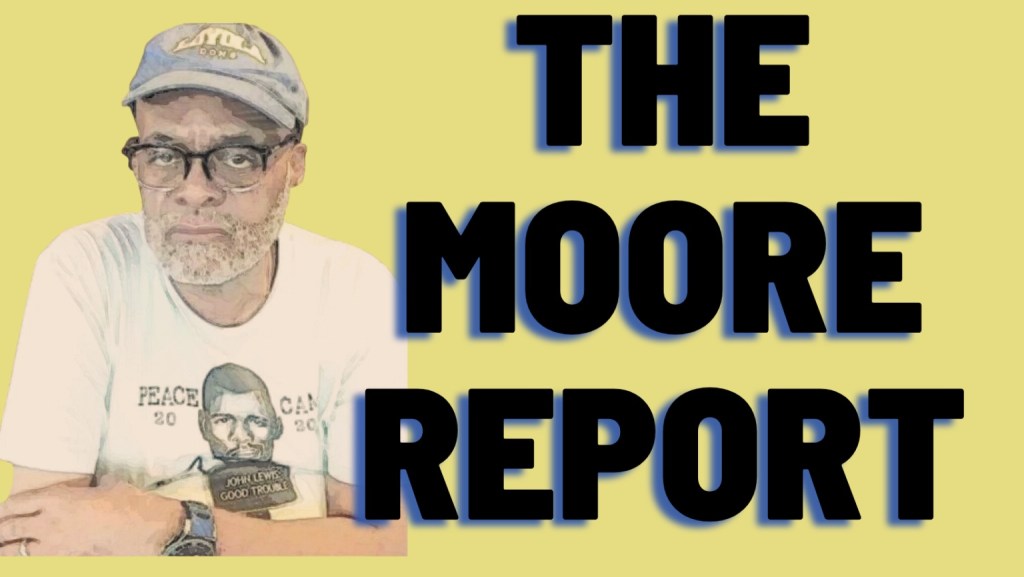By Ralph E. Moore Jr
The latest sports news is that baseball pitcher and hitter, Shohei Ohtani, recently signed a $700,000,000 contract for ten years with the Los Angeles Dodgers. Wow, that’s a big one!
Ohtani became a free agent on Nov. 2 of this year. Just for the record, a free agent in professional sports is a player who is eligible to sign with other clubs or franchises, i.e., not under contract to any specific team. The term also refers to a player who is under contract at present but who is allowed to solicit offers from other teams.
Without the Black baseball players who paved the way for professional athletes of the future, Ohtani could not have gotten the big paydays he’ll be getting for the next decade. He and all the other well paid ball players should be grateful to Curt Flood (1/18/38-1/20/97), a centerfielder who played for the Cincinnati Reds, the St. Louis Cardinals and the Washington Senators. Flood was an activist by nature, who had the courage to speak up for himself and others enough to challenge the team ownership and league systems.
Here is Curt Flood’s story: He was born in Houston but raised in Oakland, Calif. Flood played outfield on the same high school baseball field that Frank Robinson of the Orioles once did. And both men played professionally for Cincinnati.
After high school, Flood signed with the Reds in 1956, made a few appearances in the 1956-57 season. He was traded to the St. Louis Cardinals in 1957. He played center field for that baseball club for 12 seasons. While his hitting skill suffered in his first two seasons, his fielding never did. Flood came out of the hitting slump with a whopping .322 batting average in 1961. He kept growing in his ballplaying accomplishments including in 1963, hitting .302 and scoring 112 runs. It was a banner year for Flood: career highs in doubles, triples and stolen bases and Gold Glove award, his first of a consecutive seven.
Obviously, Flood was a high impact ball player and team member. He made it into All Star games, helped his teams (the Cardinals) into the World Series and had some errorless seasons in the outfield. His highest season batting average was .335 in 1967.
When the 1968 World Series between the Boston Red Sox vs. The St. Louis Cardinals ended, Flood expected a raise to a much higher salary considering his outstanding performance in the season and the series. Instead, the team president, Gussie Busch, gave him a mere $5,000 raise, short of the $90,000 salary he had hoped. Anheuser-Busch, the beer company, owned the team and certainly could have afforded more.
Flood, already an amazing ballplayer, decided to become a labor activist. He took on Major League Baseball’s longstanding reserve clause. It kept players stuck for life with the team they originally signed even when they upheld every aspect of their contract.
Floyd was traded by the Cardinals to the Phillies on Oct. 7, 1969 along with three of his teammates. He refused to go pointing to the Phillies’ poor record and poorly maintained stadium, not to mention hostile–if not racist– fans. Clearly, he was not ready to pick up and move to another city and adding insult to injury, some say he heard about the trade from a reporter. Floyd wrote in his autobiography that he heard it from middle management. He met with the team manager and was offered a $100,000 salary. Then he met with the players’ union which agreed to fund a lawsuit on his behalf. Flood accepted the union’s offer.
He wrote to the Baseball Commissioner, Bowie Kuhn and demanded he be declared a free agent. Floyd proclaimed, “I think the change in black consciousness in recent years has made me more sensitive to injustice in every area of my life.” The Commissioner denied Floyd’s asking for free agency, so he filed a $1,000,000 anti-trust lawsuit against MLB and Kuhn. Jackie Robinson (yeah, #42) testified on his behalf. Sandy Koufax, a star pitcher for the Dodgers, cheered Flood on publicly.
The case Flood vs. Kuhn went before the Supreme Court on Mar. 20, 1972. On June 19, 1972 the court ruled 5-3 in favor of Major League Baseball. The Baseball player’s union persisted in court with another case and prevailed in getting the reserve clause eliminated in December of 1975. Free agency was allowed as an option in MLB by the start of the ’76 season. In 1998 Congress passed the Curt Flood Act of 1998 and President Bill Clinton signed it into law. It ended baseball as a monopoly and eliminated the owners’ control over players’ contracts.
So, Ohtani, and all other athletes with professional contracts, should thank Flood for his success…
The post Sports player contracts are a bigger deal thanks to Curt Flood appeared first on AFRO American Newspapers.










